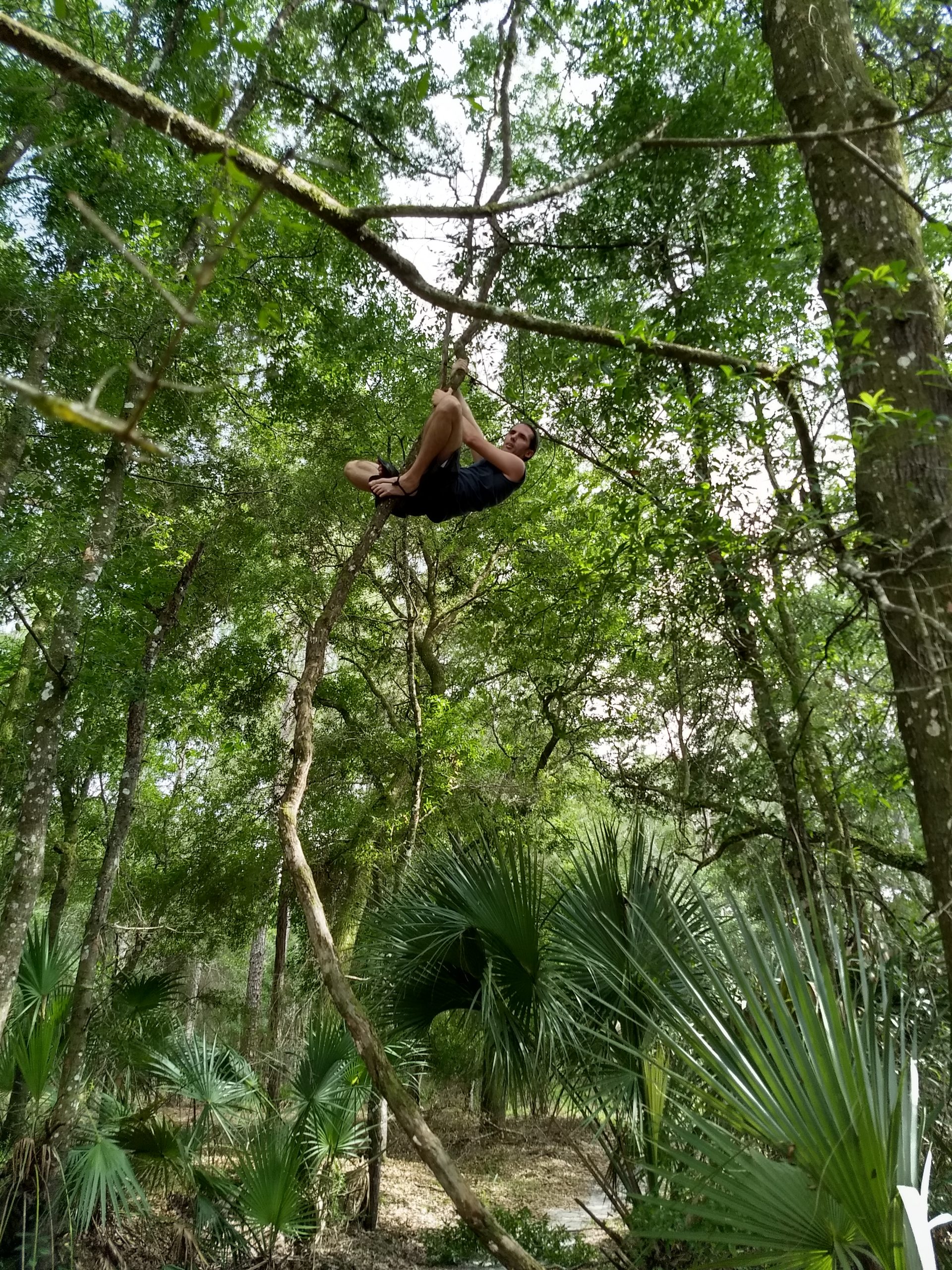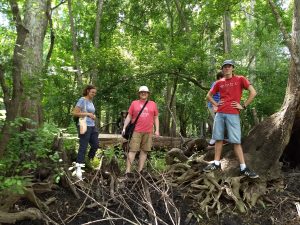 It was a hot and humid afternoon.
It was a hot and humid afternoon.
Not exactly the best time for a hike in the woods, but we were intrigued by the opportunity to join the husband-and-wife team of John and Kit McGee of the Environmental Team at the Hillsborough River Wilderness Park. John, who earned a B.A. in environmental policy from Eckerd College, had promised us we could “go at our own pace” but the focus would be relearning the movements our ancestors had used for centuries to navigate the wilderness.
Whenever I think of Hillsborough State Park, I think of wide boardwalks under towering oak trees. Turns out the Wilderness Park, across Morris Bridge Road from the main park, is a lot more primitive. Once we left the kiosk at the entrance, the trail was mostly single-wide trek through diverse habitats.
The shady oaks, he explained, are actually second-growth forest that has rebounded from land that was once orange trees. Owned by the Southwest Florida Water Management District, the land functions primarily to protect the Hillsborough River and the city of Tampa’s reservoir which serves as its main source of potable water.
Oaks aren’t considered a “climax species” in Florida although most people think they are, he notes. “Hardwoods like maple and hickory are the natural climax although most people think that oaks are the climax species because they look so old.”
With John in the lead and Kit bringing up the back to make sure we didn’t lose anyone, we trekked through amazing wild places, learned to “crab walk” up and down slopes to protect our ankles, tried to balance on low-lying branches and even climbed a giant vine. We visited two ancient sinkholes, one perfectly clear and the other coated in algae. “Even the groundwater in Florida has too much nitrogen so it’s polluted even before it comes back to the surface,” John said.
Environmental Team specializes in re-teaching people how to interact with their natural environment. “Many of us have lost this connection to the real world, resulting in decreased cognitive development, increased allergies, obesity, motor and musculoskeletal decline, increased stress and mental illness, the list goes on,” he says. “As those benefits have been lost, phobias and fears of the natural world have taken their place, making people retreat further from the very thing they need.”

None of us had fears of snakes or spiders – but we watched those sinkholes carefully for alligators even though John said the sides were too steep for them to get in or out. We did learn survival skills, particularly about edible plants if we ever got lost in the woods as well as some interesting techniques on finding our way out of the woods.
“It was hot and sweaty but still magical,” said Meg Profetto, one of the other participants who had ridden her bicycle across the country as a teen but has gotten less outdoor exercise lately. “It’s such a pleasure to be in the woods with someone who knows what they’re looking at and how ecosystems all need to work together.”
The McGee’s host wilderness treks most Friday afternoons, with reservations available through www.eteamsvc.com. Even in the heat, it’s the perfect activity for a pandemic, he says. “We’re outside in fresh air and keeping a distance — at most of our events, we’ve got less than 10 people in about 5,000 acres.”
By Vicki Parsons
